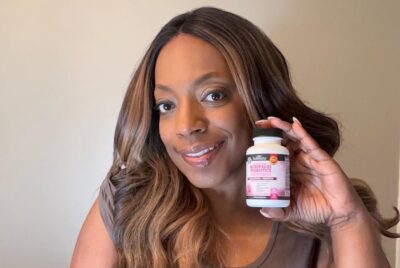Best Supplements for Menopause
We may earn a commission for purchases made using our links. Please see our disclosure to learn more.
Introduction
As a woman who has experienced menopause, I understand the challenges it brings. Menopause is a natural phase of life, but it can be accompanied by a range of uncomfortable symptoms, from hot flashes and mood swings to bone loss and skin changes. In this article, I will share my insights as an enthusiast and advisor, discussing the benefits of supplements for menopause and providing helpful suggestions on incorporating them into your routine.
Importance of Supplements during Menopause
During menopause, hormonal changes can lead to nutrient deficiencies, making it essential to pay extra attention to our diet and consider supplementation. While a balanced diet remains crucial, supplements can fill in the gaps and support our bodies during this transitional period.
Vitamins for Menopause
Vitamin D for Bone Health and Mood
Vitamin D plays a vital role in maintaining bone health and supporting a positive mood. As estrogen levels decline during menopause, women become more susceptible to bone density loss. Vitamin D aids in calcium absorption, promoting bone strength and reducing the risk of fractures. Additionally, it supports mental well-being, which can be beneficial when mood swings and irritability arise.
Vitamin E for Hot Flashes and Skin Health
Vitamin E has been shown to alleviate hot flashes, one of the most bothersome menopause symptoms. Its antioxidant properties help neutralize free radicals, which contribute to skin aging and other cellular damage. Including vitamin E in your supplement regimen can help keep your skin healthy and vibrant.
Minerals for Menopause
Calcium for Bone Strength
Another essential supplement for menopause is calcium, as it helps maintain bone density and strength. Women going through menopause often experience bone loss due to hormonal changes. Calcium supplementation, combined with weight-bearing exercises, can significantly reduce the risk of osteoporosis.
Magnesium for Sleep and Mood
Menopause can disrupt sleep patterns, leading to fatigue and irritability. Magnesium is known for its calming effects and can improve sleep quality. Moreover, it plays a role in mood regulation, potentially reducing anxiety and stress during this challenging phase.
Herbal Supplements for Menopause
Black Cohosh for Hot Flashes
Black Cohosh has been used for centuries to alleviate hot flashes and night sweats. This herbal supplement may help balance hormone levels, easing menopause symptoms without the risks associated with hormone replacement therapy.
Red Clover for Hormone Balance
Red Clover contains compounds called isoflavones, which mimic estrogen in the body. This can help regulate hormonal imbalances and reduce the intensity of hot flashes and mood swings.
Omega-3 Fatty Acids
Reducing Inflammation and Supporting Heart Health
Omega-3 fatty acids, commonly found in fish oil supplements, have anti-inflammatory properties that can ease joint pain and inflammation associated with menopause. Moreover, they support heart health, which is crucial as the risk of cardiovascular issues increases with age.
Soy Isoflavones
Phytoestrogens and Their Effects
Soy Isoflavones are plant compounds that act as phytoestrogens. They bind to estrogen receptors in the body, providing a mild estrogenic effect that may help alleviate menopause symptoms.
Probiotics
Gut Health and Menopause Symptoms
Probiotics promote gut health, which is especially important during menopause. They can ease digestive issues and enhance nutrient absorption, improving overall well-being.
Collagen Supplements
Skin Health and Elasticity
Collagen is essential for maintaining skin elasticity and hydration. As estrogen declines during menopause, skin changes are common. Collagen supplements can support skin health and reduce the appearance of fine lines and wrinkles.
Plant-Based Hormone Therapy
Natural Alternatives to Hormone Replacement Therapy (HRT)
For women who prefer natural alternatives to traditional hormone replacement therapy, certain plant-based supplements offer relief from menopause symptoms. Discussing these options with a healthcare professional can help make informed decisions.
Combining Supplements for Optimal Results
Developing a Personalized Supplement Regimen
Each woman’s experience with menopause is unique, and so are her supplement needs. Creating a personalized supplement regimen, based on individual symptoms and health goals, can optimize results and overall well-being.
Exercise and Diet during Menopause
Supporting Supplement Effects with Lifestyle Choices
Supplements work best when complemented with a healthy lifestyle. Engaging in regular physical activity and following a balanced diet rich in fruits, vegetables, and whole grains can enhance the benefits of supplementation.
Consulting with a Healthcare Professional
Importance of Seeking Expert Advice
Before starting any supplement regimen, it is crucial to consult with a healthcare professional. They can assess your health status, identify potential interactions with medications, and recommend appropriate dosages.
Safety and Precautions
Potential Interactions with Medications
Supplements can interact with certain medications, affecting their efficacy or causing adverse effects. Being aware of potential interactions is vital for your safety.
Conclusion
Menopause is a natural phase of life that every woman goes through, and it shouldn’t be a time of suffering. Incorporating the right supplements into your daily routine can help manage menopause symptoms, improve overall well-being, and enable you to embrace this new chapter with confidence and vitality.
FAQs
Are there any side effects of Black Cohosh and Red Clover supplements?
Both Black Cohosh and Red Clover are generally well-tolerated, but some individuals may experience mild stomach upset or headaches. It’s essential to consult with a healthcare professional before starting any new supplement.
Can I take calcium and magnesium supplements together?
Yes, calcium and magnesium are often taken together as they work synergistically to support bone health and overall well-being.
Are soy isoflavones safe for breast cancer survivors?
Some research suggests that high doses of soy isoflavones may affect estrogen-sensitive breast cancer cells. Breast cancer survivors should consult with their oncologist before taking soy isoflavone supplements.
How long should I take collagen supplements to see results for my skin?
The time it takes to see noticeable results with collagen supplements can vary from person to person. It’s best to be consistent with supplementation and maintain a healthy lifestyle for optimal results.
Can supplements completely replace hormone replacement therapy (HRT)?
While supplements can help manage menopause symptoms, they do not completely replace HRT in certain cases. Consult with a healthcare professional to determine the most suitable approach for your specific needs.




